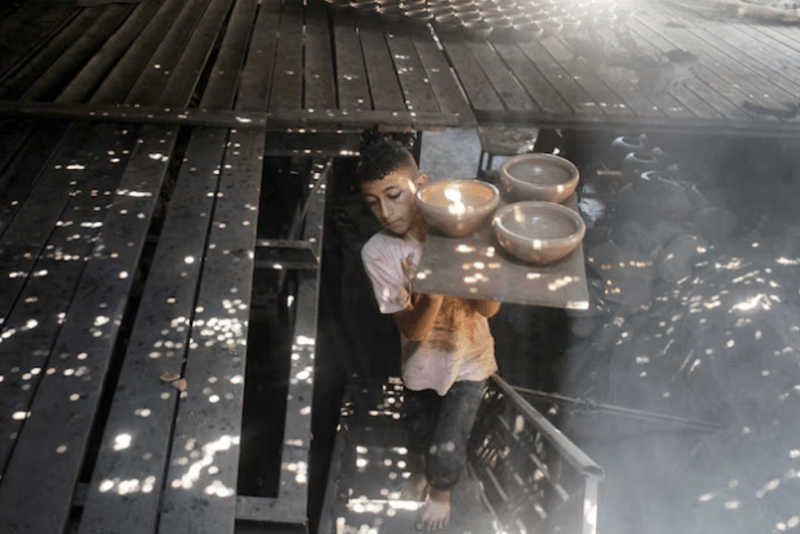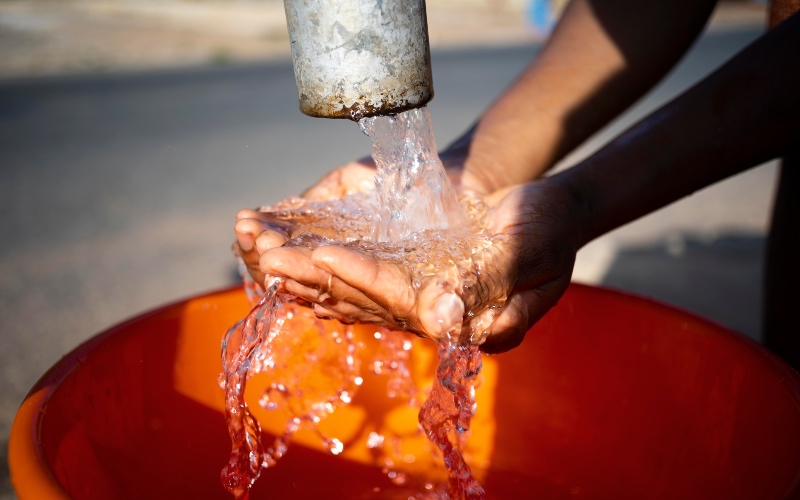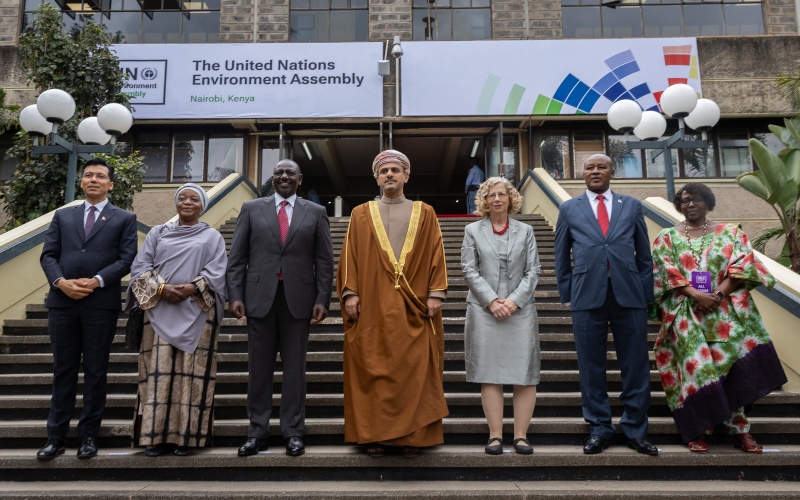Palestinians use clay pots to keep water cool in electricity-short Gaza

But the war has also presented hardships for the potters who today turn the wheels using their feet and shape the clay by hand.
The need to keep water cool in Gaza, where electricity is in short supply and 2.3 million people have been driven from their homes, has spurred a resurgence in the traditional Palestinian craft of pottery.
"People are now replacing fridges and cold water in refrigerators with clay pots," said Bahjat Sabri Attallah, the owner of a pottery factory.
More To Read
- Maternal and newborn health in crisis as millions born in conflict zones, Save the Children warns
- Gaza faces humanitarian disaster with thousands trapped in flooded camps
- Ghana expels three Israelis over Ben Gurion Airport detentions
- UN warns human rights face growing threats worldwide in 2025 as funding for activists falls
- UN condemns Israel for storming UNRWA compound in East Jerusalem
- Egypt rejects US plan for foreign control in Gaza, insists Palestinians must govern themselves
He told Reuters that the industry has seen increased demand amid the destruction wrought by the Israeli military offensive.
But the war has also presented hardships for the potters who today turn the wheels using their feet and shape the clay by hand.
They did not always work this way. "Whereas we previously worked with clay on (electrical) machines, today we shape clay on machines using our feet instead," Attallah said.
Wood now powers the factory's kiln, which previously ran on fuel, he added.
However, food shortages mean the need for pots for cooking is no longer so great.
"Today we have no meat or vegetables, therefore there is no demand for these items," Attallah explained.
Amid the sweltering summer heat, shopkeeper Mahmoud Khidr said he was keeping drinking water cool by storing it in a clay pot like the ones at the factory. "Now we have gone back to the old days," he said.
Aside from the difficulties of finding and storing water, Palestinians face a humanitarian crisis with shortages of food and fuel and the spread of diseases like polio.
The war in Gaza started on October 7. The death toll of Palestinians killed by the Israeli military campaign has exceeded 40,000, according to Gaza authorities. At least 1,200 Israelis have been killed, according to Israeli tallies
Standing in his shop, his clay pot perched atop a refrigerator, Khidr said: "We are suffering from everything."
Top Stories Today










































